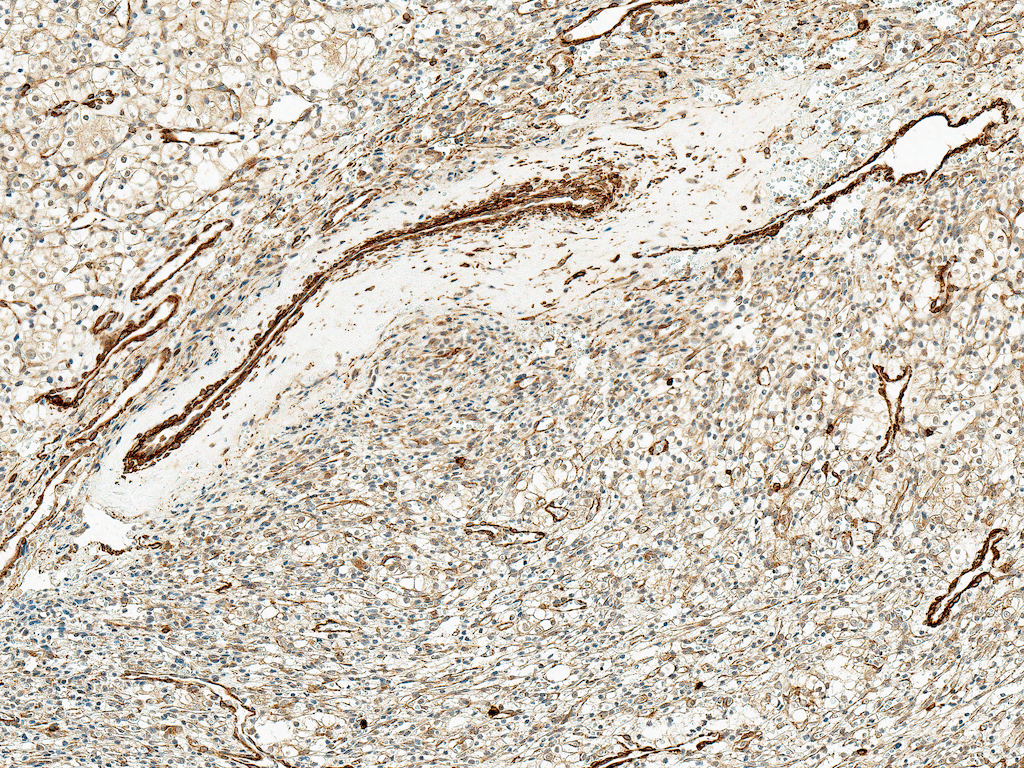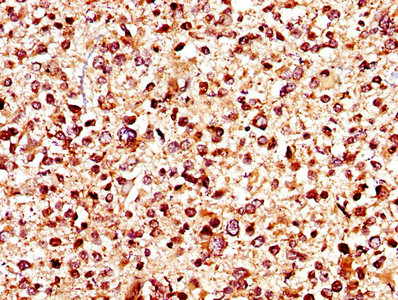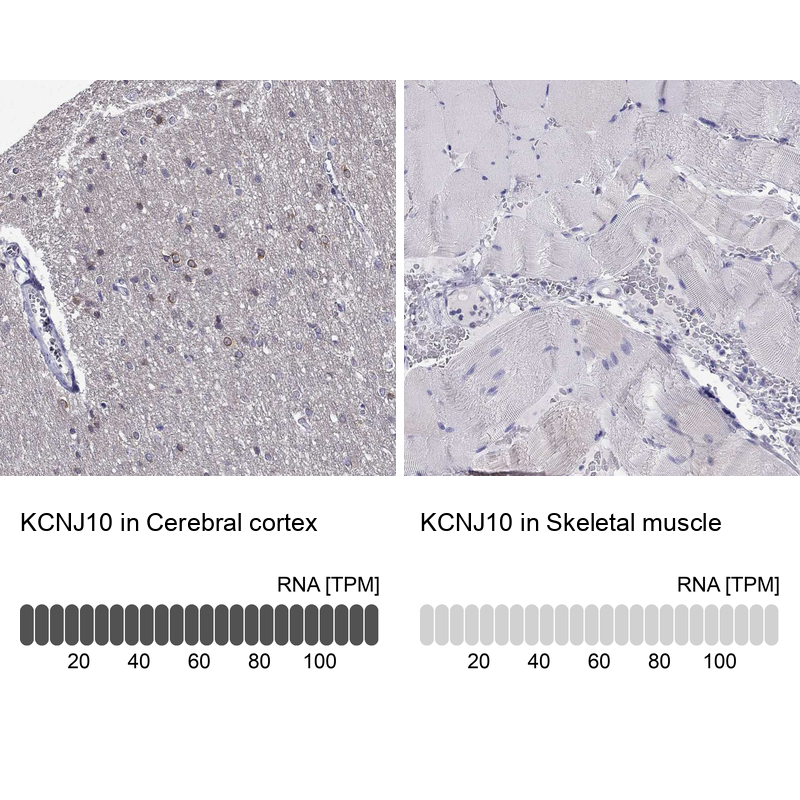KCNJ10 Polyclonal Antibody
RD253181A
ApplicationsELISA, ImmunoHistoChemistry
Product group Antibodies
ReactivityHuman, Mouse, Rat
TargetKCNJ10
Overview
- SupplierReddot Biotech
- Product NameKCNJ10 Polyclonal Antibody
- Delivery Days Customer5
- ApplicationsELISA, ImmunoHistoChemistry
- CertificationResearch Use Only
- ClonalityPolyclonal
- Concentration1.02 mg/ml
- ConjugateUnconjugated
- Gene ID3766
- Target nameKCNJ10
- Target descriptionpotassium inwardly rectifying channel subfamily J member 10
- Target synonymsBIRK-10, KCNJ13-PEN, KIR1.2, KIR4.1, SESAME, ATP-sensitive inward rectifier potassium channel 10, ATP-dependent inwardly rectifying potassium channel Kir4.1, glial ATP-dependent inwardly rectifying potassium channel KIR4.1, inward rectifier K(+) channel Kir1.2, inward rectifier K+ channel KIR1.2, potassium channel, inwardly rectifying subfamily J member 10, potassium voltage-gated channel subfamily J member 10
- HostRabbit
- IsotypeIgG
- Scientific DescriptionKCNJ10 (Potassium Voltage-Gated Channel Subfamily J Member 10) is a Protein Coding gene. Diseases associated with KCNJ10 include Sesame Syndrome and Deafness, Autosomal Recessive 4, With Enlarged Vestibular Aqueduct. Among its related pathways are Inwardly rectifying K+ channels and GABA receptor activation. GO annotations related to this gene include identical protein binding and potassium channel activity. An important paralog of this gene is KCNJ15.This gene encodes a member of the inward rectifier-type potassium channel family, characterized by having a greater tendency to allow potassium to flow into, rather than out of, a cell. The encoded protein may form a heterodimer with another potassium channel protein and may be responsible for the potassium buffering action of glial cells in the brain. Mutations in this gene have been associated with seizure susceptibility of common idiopathic generalized epilepsy syndromes.
- ReactivityHuman, Mouse, Rat
- Storage Instruction-20°C
- UNSPSC12352203






